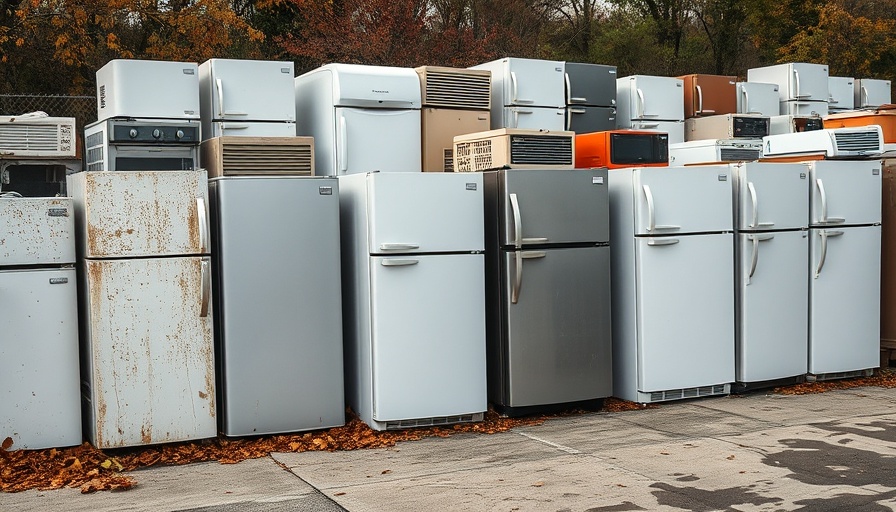
Understanding Fridge Disposal: An Environmental Imperative
Many homeowners across Connecticut find themselves oblivious to their duty regarding the disposal of outdated refrigerators. This lack of awareness, however, can have significant repercussions on the environment. Properly disposing of an old fridge isn't just about getting rid of appliances; it is a critical component of environmental sustainability. With a correct approach, not only can you adhere to waste management regulations, but you can also help in reducing your environmental footprint.
The Environmental Threat of Improper Disposal
The journey of abandoned refrigerators to landfills can unleash a myriad of environmental issues. A neglected fridge can leach toxic substances, including refrigerants and chemical compounds, into the soil and waterways. Among the worst offenders are hydrofluorocarbons (HFCs) and chlorofluorocarbons (CFCs), both of which can deplete the ozone layer and contribute to global warming. Furthermore, many older fridges contain non-recyclable materials that, as they break down, release greenhouse gases into the atmosphere.
Why Refrigerants Matter: Climate Change at Risk
Among the many environmental concerns linked to fridge disposal, the emissions from refrigerants stand out. Many outdated models harbor CFCs and HFCs—substances known for their high global warming potential. Even slight leaks during disposal can lead to significant harm. What's essential, therefore, is the recovery and recycling of these refrigerants through licensed waste management companies. By adopting responsible disposal methods, we can alleviate their harmful effects and pave the way for a more sustainable future.
The Recycling Solution: Turning Waste Into Resources
One of the most effective strategies for lessening environmental impacts is the recycling of old refrigerators. Remarkably, many materials used within fridges, such as glass, metals, and plastics, can be repurposed for new products. Established recycling facilities utilize specialized techniques to safely collect hazardous materials. Opting for recycling over landfill disposal not only conserves resources but also reduces waste dramatically. Several manufacturers and retailers offer take-back schemes, encouraging consumers to dispose of appliances responsibly, thus fostering a circular economy.
Understanding Local Regulations Around Appliance Disposal
Connecticut, like many states, has established strict regulations regarding the disposal of refrigerating units. These laws often mandate that licensed professionals manage the dismantling and refrigerant recovery processes to mitigate environmental harm. Consumers should be mindful that illegal disposal of appliances can result in hefty fines and legal repercussions. Communities may also offer designated drop-off points or collection services for old appliances, ensuring compliance with state laws. Staying informed about local disposal protocols is crucial for responsible waste management.
Empowering Consumers Through Knowledge
Consumer awareness is a dynamic force in promoting responsible refrigerator disposal. Many residents may not fully grasp the negative impacts of careless disposal or the alternatives available to them. Public awareness campaigns can play an indispensable role in enlightening homeowners in Fairfield County about responsible waste management options. By sharing vital information on environmentally friendly disposal methods, we can guide community members toward better choices that benefit both their homes and the planet.
Taking Action: What Homeowners Can Do
As a homeowner in Fairfield County, you may feel a call to action when it comes to proper fridge disposal. Start by checking local guidelines regarding the disposal of appliances, and don’t hesitate to seek out professional services to manage the recycling process. Consider organizing a community event where residents can learn about sustainable living practices, including fridge disposal. By making informed choices, and encouraging others to do the same, you nurture a healthier environment for both your family and the community as a whole.
In summary, responsible fridge disposal transcends compliance with regulations; it's a crucial step towards preserving the environment. Every time you make an informed decision about how to handle an old refrigerator, you are contributing positively to the community and the planet. So take the initiative: learn about your local disposal options and become an advocate for sustainability today!
 Add Row
Add Row  Add
Add 




 Add Row
Add Row  Add
Add 

Write A Comment